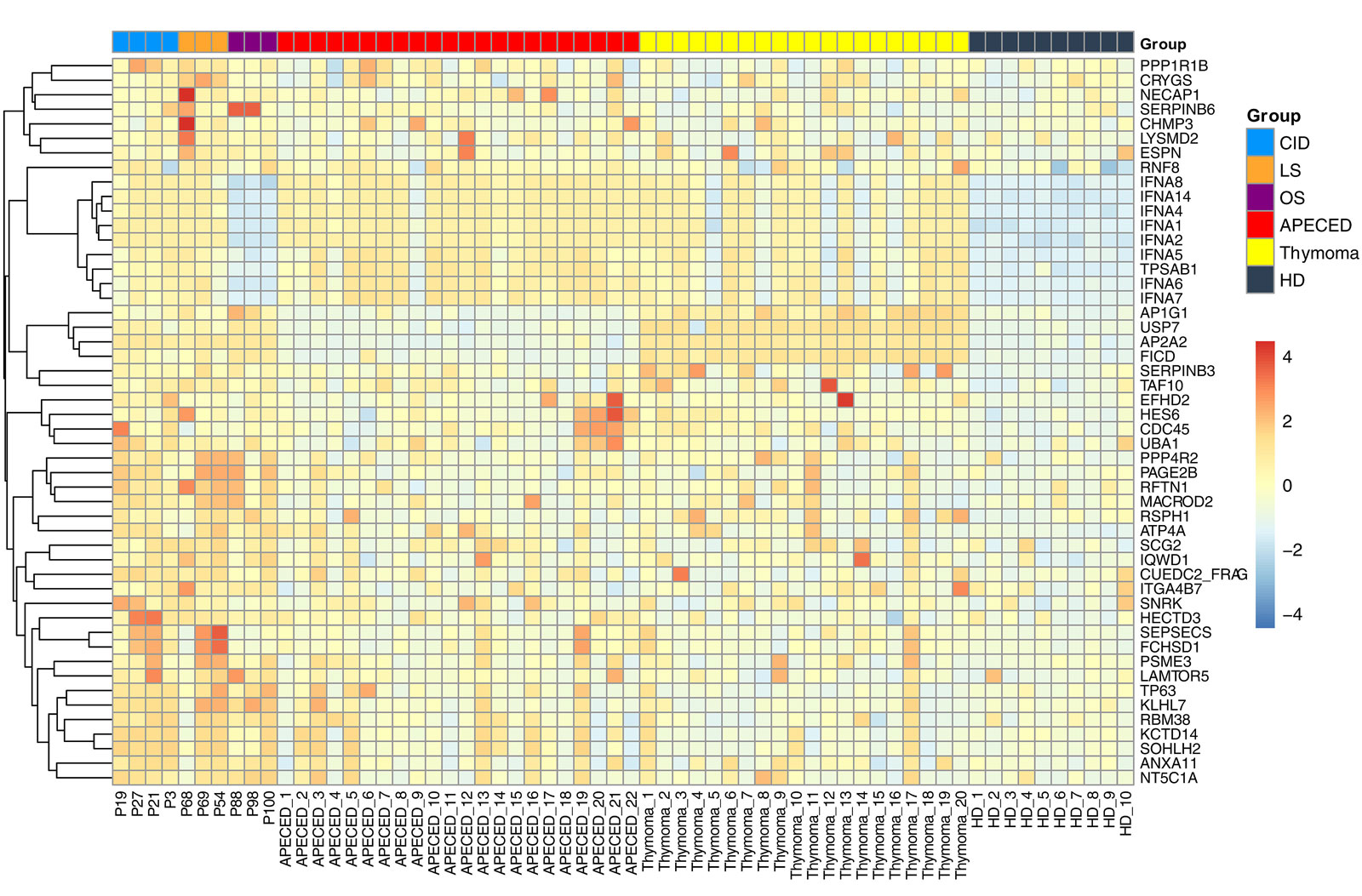Publication Highlight
Science Immunology | January 2025
Marita Bosticardo, Luigi D. Notarangelo, et. al.
Laboratory of Clinical Immunology and Microbiology, National Institutes of Health
Exploring Clinical Phenotypic Variability in Human RAG Deficiency
Recombination-activating gene (RAG) deficiency is a primary immunodeficiency disorder caused by mutations in RAG1 or RAG2 genes. These genes are essential for the development of functional T and B cells through V(D)J recombination, the process that generates diverse antigen receptors. Despite shared defects in this fundamental immune mechanism, RAG deficiency presents with variable clinical phenotypes, prompting researchers to question the underlying mechanism driving this variability.
A Multiomic Approach to Autoantibody Profiling
Researchers at the National Institute of Allergy and Infectious Diseases employed comprehensive multi-omic analysis, including autoantibody profiling with HuProt™ microarrays, to systematically characterize immune dysregulation patterns across RAG-deficient patient cohorts. In this study, plasma samples from 10 RAG-mutated patients and 10 healthy donors were profiled on the arrays, and it was revealed that RAG-deficient patients exhibit enhanced reactivity to a broad spectrum of self-antigens. The analysis revealed subtype-specific autoantibody signatures, with certain RAG phenotypes showing strong reactivity against IFN-α peptides while others did not, demonstrating distinct immunological profiles across different clinical manifestations of RAG deficiency.
“The HuProt autoantibody array revealed a broad spectrum of autoantibody specificities in patients with CID and LS, similar to results reported using phage immunoprecipitation sequencing.” - Bosticardo et. al.

FIGURE: Heatmap showing the top 50 peptides to which autoantibody reactivity was detected in plasma from RAG-mutated patients using the HuProt assay. Each column represents a patient sample. CID = delayed-onset combined immune deficiency; LS = leaky severe combined immune deficiency disease; OS = Omenn syndrome; APECED = autoimmune polyendocrinopathy–candidiasis–ectodermal dystrophy; HD = healthy donors.
Credit: Multiomics dissection of human RAG deficiency reveals distinctive patterns of immune dysregulation but a common inflammatory signature, Marita Bosticardo, et. al., Science Immunology, 10 Jan 2025.


